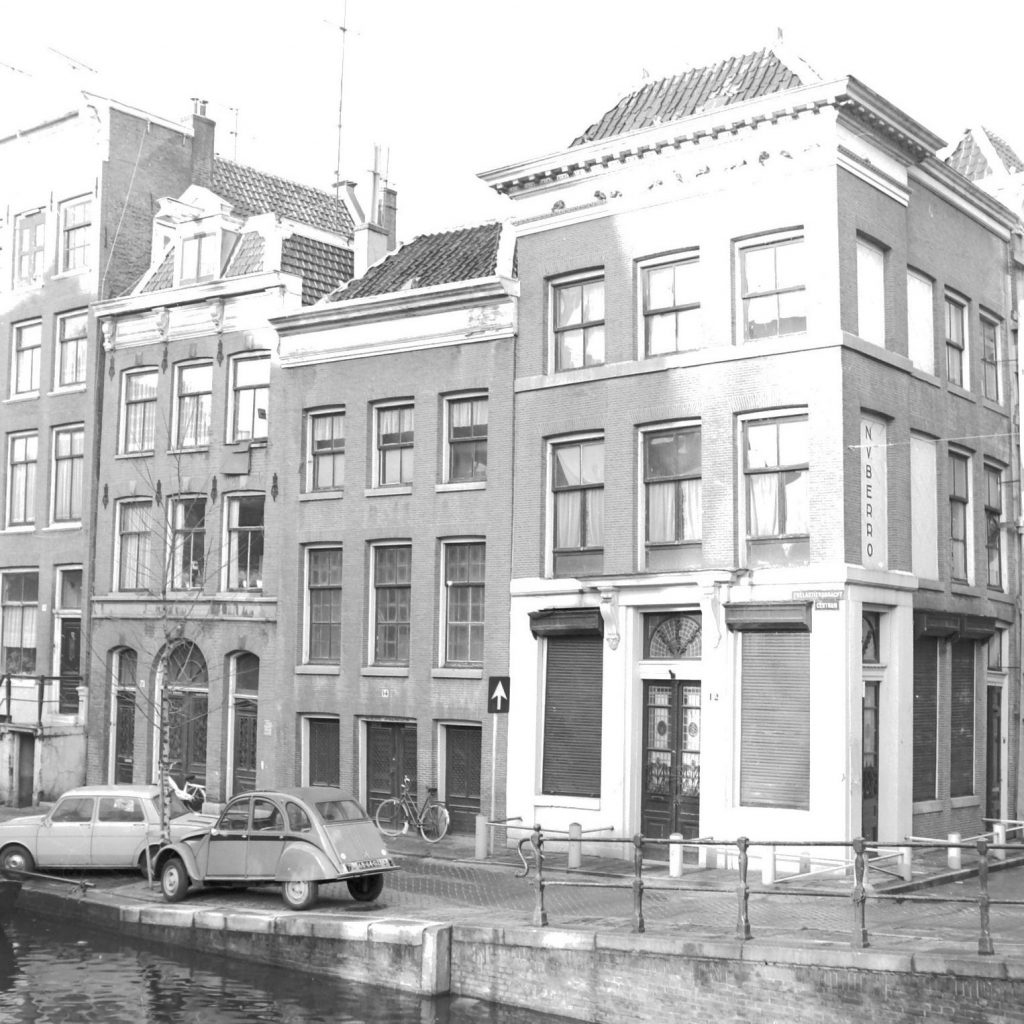THE HISTORY
Without German Pieter Hoppe no Café 't Smalle.
Around the year 1780, Hoppe decides to leave for Amsterdam. Maybe he fears a war, maybe he thinks he can earn more in the Netherlands. Either way, he waves goodbye to his family, packs his suitcases, hides his securities among his clothes, and leaves his homeland with wife, son and daughter. In Amsterdam, he takes over a wine shop on Egelantiersgracht. Later, he also establishes a liqueur distillery and a distillery.

The current Café 't Smalle served as a tasting room at the time.
When Hoppe comes to live here, Egelantiersgracht is only a century and a half old. It is in the Jordaan, the district for the common people. The Jordaan, at the time an open sewer, is seen by the neat city dwellers of the main canals as the district of Sodom and Gomorrah, where fornication, death and decay take place.
Various crafts take place here; there is sawing, carpentry, street vendors and shoe shiners praising their wares and skills. It is a coming and going of barges to load and unload, handcarts and squeaky carriages rattling along the paths. All drowned out by the sound of screaming pigs and bellowing cattle being slaughtered in the open.
Every street has a different smell. Wood, metal, clotted blood and flesh, animal skins and rotting fruit meet you. And all the rubbish ends up in the moat, which gives off an overpowering stench. The rich merchants and high lords quenched their thirst in those days with wine and strong liqueurs. The scum had to make do with brandy and beer, all because water was not fit to drink in those days.
Pieter Hoppe is not much into beer, all the more into liqueurs and gin. He was not allowed to make these until he officially became a citizen of the city, a "poorter". In 1804, he finally managed to do so after paying a hefty sum of money and swearing his allegiance to Amsterdam. Hoppe then rapidly bought into the Egelantiersgracht and after a while owned almost the entire even side. Together with a few warehouses on Egelantiersstraat, his distillery and liqueur distillery controlled a considerable area.
His distillery is a true lover's paradise where one gets drunk from the 'spirit of angels', the alcohol-infused air, even without having drunk a single drop.

Hoppe made good money in Amsterdam by innovating and using modern, efficient distillation equipment. After his death, his widow, son and son-in-law continue his life's work and expansion to Schiedam soon became necessary due to the sizeable market and huge quantities of Jenever that had to be produced. Consequently, the famous Hoppe Jenever was made in Schiedam from 1858 onwards.
In the late 19th century, Hoppe outperforms its competitors Wijnand Fockink and Bols and employs more workers than their rivals. But when the last Hoppe, Harry Hoppe, retires in 1954 and no suitable successor can be found, Johannes Pieter Coebergh comes to the helm to run Hoppe, nominated by Heineken who are now major shareholders.

After a reorganisation, the premises in Amsterdam were eventually closed and sat empty for long periods, with occasional tenants such as the firm Berro. In 1973, the City of Amsterdam, now the owner of the premises, sought a tenant and coincidentally ended up with Heineken. The Heineken company worked out plans to establish a café at 12 Egelantiersgracht and on 30 November 1978, the time had finally come and Café 't Smalle was festively opened.
'During the opening, much attention was paid to Mr W.F. Holleeder, employee of Heineken's advertising service department, who made a special effort to preserve the property as well as possible. Precious pieces from the contents were saved by him, squatters kept out and the furnishings including beautiful stained glass protected as much as possible.'
REFERENCES
https://vrijetijdamsterdam.nl/uitgaan/kroeg/
https://nl.wikipedia.org/wiki/Jenever#Nederland
https://heineken.memorix.nl/issue/VVV/1979-02-01/edition/0/page/11
